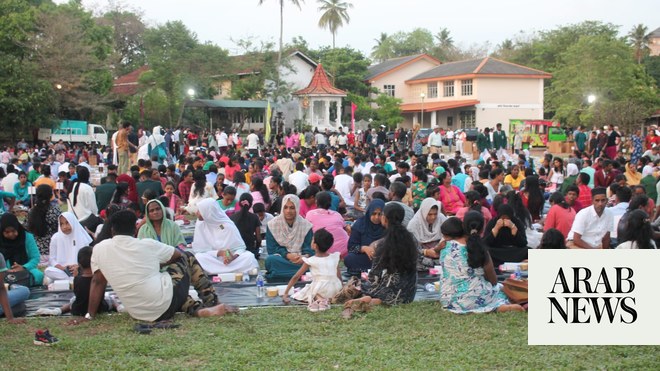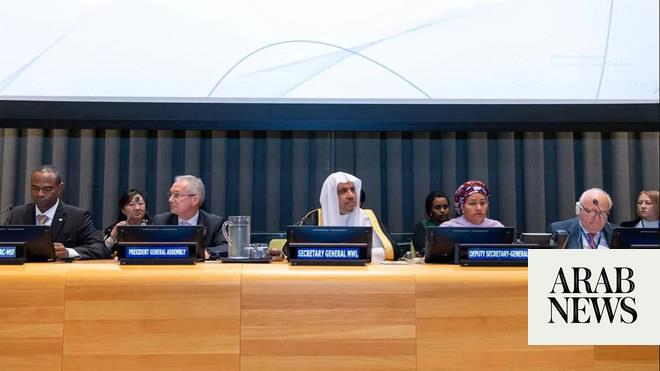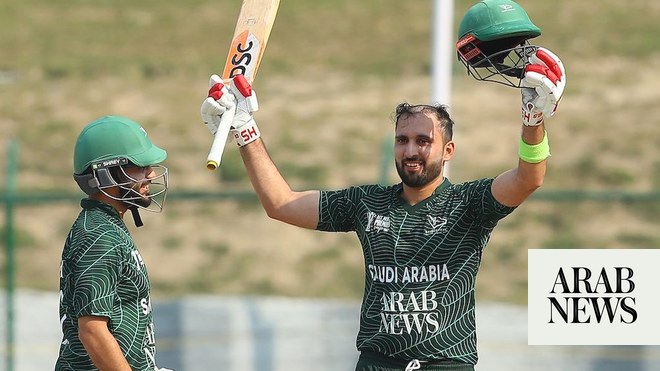
Talking about journalism as an enabling tool for interfaith and intercultural dialogue, Malbrunot says
RIYADH: Journalists have a key role in improving understanding between East and West, the Saudi Media Forum was told on Tuesday.
Georges Malbrunot, Middle East correspondent for the French daily Le Figaro, said: “Foreign journalists need to come to the region and see the changes.”
Speaking at a session titled “Cross-Cultural Journalism: Bridging a Gap,” the veteran reporter said: “We need more exchange between journalists from the East and West.”
Malbrunot, a senior journalist with extensive knowledge of the region, added: “After 25 years covering the Middle East, I am quite familiar with the practices of journalism and the culture in both parts of the world. That is why I think journalism can be a link, and even a way of putting together the two societies and perhaps our cultures.
“From my side, France, especially the youth, needs to read about this region.
“People from Saudi Arabia, the UAE and Qatar know us better than we know them. Except for businessmen, journalists or diplomats, few people come from Europe to visit this country. But as things are changing, and in the right direction, more Europeans tourists come to visit Dubai, Abu Dhabi and now the beautiful site of AlUla in Saudi Arabia.
“This is a positive point, because when you come here, you start changing your mind. You change your preconceived ideas about Gulf countries, about women, about the way of life — this is real factor in better understanding,” he said.
Malbrunot also blamed television’s tendency to sensationalize and trivialize subjects for causing real damage.
“If you want to narrow the gap between our cultures, our way of judging situation, journalists from both sides should first recognize our differences, and should assuage these differences without judging,” he said.
Talking about journalism as an enabling tool for interfaith and intercultural dialogue, he said: “Let me be clear, we do not have to bring, as Western journalists, our values in this part of the world. Of course, we share some universal values, but it is a terrible mistake to think that we can export our values, particularly in a society where tribal traditions are still strong.
“Of course, it reminds us of the terrible mistake by the US in 2003 when they eradicated the Iraqi state,’ he added.
Malbrunot said that digital and social media “is flooded with unverified information, and have influenced youth in our society who have opinions on the Middle East with low levels of knowledge of the situation.
Speaking on “East versus West: Media Through Different Lenses,” Abdullah Al-Baqali, president of the Moroccan Journalists’ Syndicate, focused on the need for greater media integration in the region.
“At the academic and knowledge levels, we lack the ability to talk to the West in a language they understand,” he said.
Arab media are directed to support ideological differences, he said, adding that religious and cultural subjects received more investment than news and political discourse.
The media should not be used for hate speech, Al-Baqali warned.
A lot of changes were taking place in the media discourse worldwide and needed to be followed up, he added.












